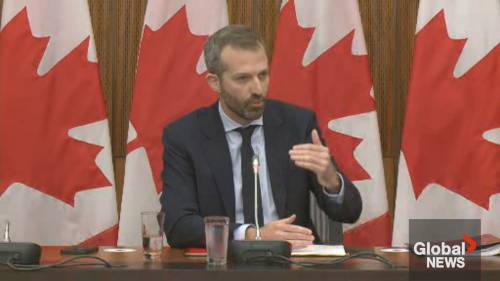In a significant shift that could reshape mail service across the country, Canada Post has been granted new flexibility that eliminates the requirement for daily mail delivery and permits the closure of rural post offices. The federal government’s decision, announced by Transport Minister Anita Anand, marks a substantial change to the long-standing postal service mandate that has served Canadians for generations.
“The revised service mandate reflects the changing reality of how Canadians use postal services today,” said Minister Anand during yesterday’s press conference. “While ensuring continued universal service, these changes will allow Canada Post to adapt its operations to meet evolving needs.”
The policy revision comes as Canada Post faces mounting financial pressures amid declining letter mail volumes—down nearly 55% since 2006 according to Canada Post’s annual reports. The Crown corporation has struggled to maintain profitability while fulfilling its universal service obligation that previously required daily delivery to all Canadian addresses.
Rural communities appear particularly vulnerable to these changes. The Canadian Postmasters and Assistants Association has expressed serious concerns about the potential impact on remote and indigenous communities, where post offices often serve as vital community hubs.
“For many small communities, the local post office isn’t just a place to collect mail—it’s an essential service center,” said Jane Thompson, rural policy analyst at the University of Manitoba. “When you remove that infrastructure, you’re potentially isolating communities that already face significant service gaps.”
The changes align with similar reforms in other countries like Australia and the United Kingdom, where postal services have reduced delivery frequency and consolidated rural operations to address financial sustainability concerns. However, critics argue that Canada’s vast geography and dispersed population create unique challenges that make such comparisons problematic.
The Canadian Union of Postal Workers has vowed to fight the changes, arguing they represent the first step toward potential privatization. “This is about more than mail delivery—it’s about preserving public services that connect Canadians,” said union president Jan Simpson.
Business experts suggest the move may be necessary for Canada Post’s long-term viability. “The reality is that the traditional mail delivery model is increasingly unsustainable,” explained Dr. Michael Chen, economics professor at the University of Toronto. “The question isn’t whether changes are needed, but whether these particular changes appropriately balance service needs with financial realities.”
The federal government has promised that Canada Post will implement a community consultation process before making any significant operational changes, particularly regarding rural post office closures. However, details about this process remain vague.
For many rural Canadians, the announcement has created uncertainty about a service they’ve long depended on. “Our post office is where seniors collect their pension checks, where small businesses ship products, and where community notices are shared,” said Robert Winters, mayor of Clearwater, Manitoba. “What happens to our community cohesion when that disappears?”
As Canadian politics continues to grapple with questions of rural service provision and the future of Crown corporations, the fundamental question remains: Can we modernize essential services like mail delivery without further marginalizing vulnerable and remote communities in the process?














